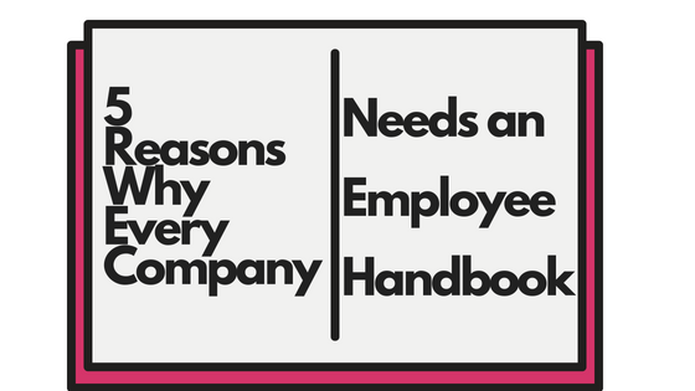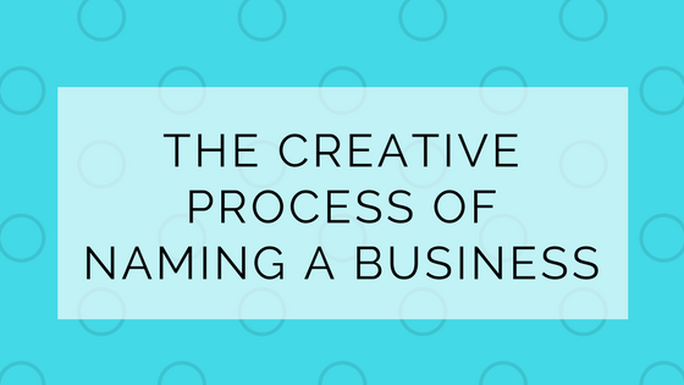|
2018 is now gone and we’ve passed almost half of the first month of 2019. But while that may be so, you aren’t way past the year to launch your business. The first couple of months of the year are still here to offer you opportunities to reflect and plan to launch your business. But if you aren’t planning to start a business, here are 5 reasons why you should consider it.
1. Modern Customers Are In for More Personalized Service With businesses further adapting to a modern customer, a new business that prioritizes a seamless, personalized service and fast delivery will be available. Modern customers today gravitate to online services that can provide them with better user experiences. Yet, most businesses fail to adapt to the modern times. The New Year would be an excellent opportunity to launch a business and take advantage of attracting these potential modern customers. 2. Improved Technology Will Make Business Operations Easier Technology is more advanced than ever. You could probably build whatever you could dream of. Among the technologies to be expected this year include predictive analysis and AI, which will deliver fantastic customer experience. It will be a game changer this year, particularly in giving businesses greater insight. 3. Plenty of Small Business Opportunities If your goal is to become wealthy, launching a small business might not give you that chance. However, small business might be able to generate you an income to live with instead of working for the man. This year’s forecast shows a bit optimistic on global trade growth, and the economy is leaning to positive. With that, starting a business this year might finally realize your dream of becoming your boss and making all the decisions. 4. Significant Changes on Banking is on the Way Even before the end of the year, there are already significant changes in banking. These changes will no doubt create a massive disruption in how you make your payment. With more radical payment methods coming along with improved technology, your mobile phone will be your wallet. With this are many opportunities to bring a potentially profitable business closer to your target audience. 5. The New Year is a Time to Do Something You Love Of course, besides the changes to come this 2019, there is no reason to launch your business that is more compelling than doing something you love. If it has always been your dream to start your own business and you think you it is time, then go for it. If you work hard running your own business and truly enjoy what you do, you have the stakes to make it a success. If you are unsure if this year is the perfect year to launch your dream business finally, the reasons mentioned might be enough to start. But like what the last reason is all about, it matters a lot that you love what you do. It is essential to choose a field where you are passionate in so you can stay in the business to make it scale. Come by our modern coworking space to see how 2019 can motivate you.
0 Comments
Mindshare capture is the amount of space a company occupies a customer’s mind. According to Investopedia, “Mindshare is a marketing term that describes the amount consumer awareness or popularity surrounding a particular product, idea, or company. Practically, it is the consumer perception of a particular brand or product compared to their rivals as measured by the amount of talk or mentions generated by the public or the media.” The more mindshare a company has, the more market share it will convert and the brighter their future will be. It is not easy to capture the minds of people in the modern days as an average person at the computer probably has more than 5 tabs open at a time, plenty of messages coming through, and social media newsfeed being as hyped as ever.
If your company can successfully gain mindshare of your customers, it will lead to more sales. Once your company had gained the mindshare of your customers, probably 3 out of 5 tabs opened on your customers’ web browser are at your company’s web page. And as humans are social animals, your customers might chat with their friends via social media, texts, or word of mouth which will make mindshare capture even stronger. Here are 4 ways to ensure success in gaining mindshare. 1. Have a unique and great product- If you have a great product, your customers will for sure come back for more. For example, Coca-Cola has had the same great recipe since the 1800s. Another example would be Amazon, which was a unique way to sell books on the internet. Both Amazon and Coca-Cola were great for their unique product. 2. Offer great customer service- People definitely remember if they were made to feel special and they would definitely tell their friends about it. 3. Have your product always be available- Make sure your product is always available. Not only would your customers be excited about it, but also, you could only make money when your product is available unless you are running a Kickstarter campaign. But, you are building a real company so make sure it is always available. 4. Make your customers feel something- Your customers should be excited, happy, fascinated, or whatever feeling they have while using your product. The more they feel while using your product the more your company will occupy their mind. Apple was a master of this. Their ads would make people feel something and Steve Job’s presentation would make users feel like they are different just by using Apple products. Get started on capturing the mindshare of your customers today! Coworking is great for combating loneliness, looking more professional, and social innovation. A lot of small business owners, freelancers, social enterprises, startups, and nonprofits turn to coworking as an office need not only to spark new ideas, but also to reduce cost. Also, coworking benefits range from reducing carbon footprint on your transportation to shared kitchen appliance to reduce electronic waste.
Here are a few reasons why coworking could save the environment.
No wonder coworking is the most trendy way to work. Not only does it come with professional benefits, it also helps the environment to reduce the speed of global warming. Come by Treehouse Society for a tour to help with the environment! Every company should have a human resource department. But some startups are way too small for it, and they skim HR department thinking it is unrealistic until it is too late. There is a semi-efficient way to get out of this issue. An employee handbook might be what every company needs, small or large, big or small. It has details that thoroughly show every activity taking place in a company’s office. This can be from recruiting to firing, and even the dress code.
The process of writing a handbook can be long and tiring. However, its importance in a company makes it well worth it to have one because a company is made out of humans. Humans all have flaws and limited amount of memory, so this employee handbook can help as a guide. Below are the 5 reasons why you need an employee handbook. Protect Your Company in an Employment Lawsuit In the event that someone is taking legal action against your business in regards to employment, your lawyer will require this handbook. This is because each and every employee has read and adhered to everything written therein. Once an employee signs the acknowledgment section in the handbook will show that he or she was privy to all rules regarding the company. Thus, the lawsuit exercised against you will be in your favor. This is very helpful since the employee accepted to follow all policies inside the handbook. Adherence to Federal and Government Law Every company that has employees is required to comply with all state and federal laws. This will involve having an employee handbook that follows all employee and labor laws in the state in question. Provided an employee who is on a leave, they will be aware of his rights as they are clearly stipulated in the handbook. Merits provided by the Company All employee benefits should be clearly shown in your handbook for all your employees, from paid vacations to pensions. These merits can motivate both the employer and employee to take advantage of said benefits. The human resource team will have less of a workload since they won’t have to explain everything to new employees. Treating Workers Fairly If by any chance a company does not write down its rules employees will feel that they are being treated unfairly. Having a handbook will clear all doubts about unfair treatment as everyone is aware of all the benefits they are to receive. The handbook could also include a time frame of when a merit is to be offered and to whom in regard to a position. Setting a Standard for Employees and Employers Everything in the business will run smoothly if everyone knows what is required of them. This can be anything from what to wear within the premises to what time to arrive at work. This will often help to avoid time wasting and increase the productivity of the business. Especially if a manager requires dealing with a business issue and the owner is unavailable, the handbook will direct him or her. Conclusion All in all, an employee handbook is supposed to help employees feel comfortable in their workspace. Whenever a problem arises or they don’t what to do in a particular situation they can find answers in the handbook. Sources: Management, H. (2017, May 16). Paycor:8 Reasons You Should Have a Company Handbook. Retrieved May 5, 2018, from Paycor: https://www.paycor.com/resource-center/8-reasons-your-organization-should-have-an-employee-handbook Msiza, T. (2017, August 15). How to Write a Human Resource Manual. Retrieved May 8, 2018, from wikiHow website: https://www.wikihow.com/Write-a-Human-Resource-Manual Nguyen, C. (2015, August 25). Amity Law: Top 5 Reasons your Company Needs an Employee Handbook. Retrieved May 5, 2018, from Amity Law: http://www.amity-law.com/blog/2015/8/25/top-5-reasons-your-company-needs-an-employee-handbook Naming your business can be a stressful process. You want to choose a name that will last as well as embodying both your values and your company's characteristics. You also want to have a creative name that no one else has so you can trademark it later on without any difficulties. However, with so many companies and startups in the world, this process is starting to get more difficult. Here are some ways to make the process easier.
Enlist Expert Help to Start Coming up with a good business name can be a complicated process. You might consider consulting an expert, especially if you are in a field in which your company name may influence the success of your business, which are most industries. There are companies where their only job is to create new names and they know trademark laws really well. They can advise you against lousy name choices. The downside is cost. Naming services can charge as much as thousands of dollars. But sometimes, spending a reasonable amount of money early for quality expert advice can save you money in the long run. Brainstorm a List of Names Start with a few keywords you have in mind. If you don't, think about what your company offers as well as your target customers. Think about what your target customers will put into Google and use keyword planner to come up with a list of words you could use for your company name. Think about it a bit more, and you will be sure to come up with a great name with the list of words. What's in a Name? Start by deciding what you want your name to communicate. It should reinforce the essential elements of your business. Your work in developing a niche and a mission statement will help you pinpoint the features you want to emphasize in your name. The more your name communicates to consumers about your business, the less effort you will need to exert in explaining it later. According to naming experts, entrepreneurs should give priority to real words or combination of words over fabricated words. People prefer words they can relate to and understand. That's why professional namers universally condemn strings of numbers of initials. Test Your Name After you've narrowed the field to four or give names that are memorable and expressive, you are ready to do a trademark search. Not every business name needs to be trademarked as long as your state government gives you the go-ahead and you aren't infringing on anyone else's trade name. But you should consider hiring a trademark attorney or at least a trademark search firm beforehand to make sure your new name doesn't infringe on another business's trademark. Most entrepreneurs arrive at a final decision by going with their guts or by doing consumer research or testing with focus groups to see how the names are perceived. You can doodle an idea of what each name will look like on a sign or business stationery. Read each name aloud, paying attention to the way it sounds if you foresee radio advertising or telemarketing in your future. Keep in mind that professional naming firms devote anywhere from 6 weeks to 6 months to the naming process. You probably won't have that much time, but plan to spend at least a few weeks on selecting a name. Once your decision is made, start building your enthusiasm for the new name immediately. Your name is your first step toward creating a healthy company identity, one that should last as long as you are in business. Related: 5 Ways to Get Entrepreneurship Funding There is a lot of confusion between small business owners and entrepreneurs. They are both risk takers pursuing their own vision and need a lot grid to make things happen. The main difference is that entrepreneurs usually take outside funding to build something way bigger while small business owners start and run a business with limited resources and planning.
Entrepreneurs are always thinking way ahead about the next thing in the world. They dream of how the world can improve. They do not settle for status quo. Entrepreneurs usually dream up of new ideas that could work or not work and try to scale it. They grow startups into big companies. They usually go for outside funding as this is a new scalable, high risk, high reward, venture. Entrepreneurs usually dream up of improving the world in a vast way and normally do not sell an already available merchandise or franchise or dealership. Entrepreneurs usually operate years before revenue comes into the door. Small business owners start their business to mostly feed themselves. Small businesses normally do not scale up like a startup. They make small decisions and usually operate the business themselves. Small business owners walk on right ropes with a safety net underneath. They are usually the bedrocks of local economies. People normally think that small businesses are only retail and some franchise owners, but with the internet, there are other options such as e-commerce, drop shipping, consulting, and freelancing. Whatever the differences, it is undeniable that both entrepreneurs and small business owners began with vision, energy, and enthusiasm to implement their businesses. The difference might be that entrepreneurs know when to sell and move on to another innovative project. Small business owners are happy running his or her business and are satisfied with their autonomy. They might not even dream of selling. Our neighbor, Wok Shop, never dreamed of selling her business no matter how many offers she received because running her business is her pride. Entrepreneurs and small business owners create their own jobs and many others if they are successful. With technological advancement, technology startups which turned corporations have helped small businesses in many ways. For example, the Wok Shop has been on Amazon since 1999 and have been growing her business with Amazon. No matter if you are a small business owner or an entrepreneur, we have a perfect space for you to be productive at Treehouse Society. You will be surrounded by other motivated entrepreneurs, small business owners, and freelancers to keep your grit going. Related: Best CRM for Freelancers and Small Businesses Customer relationship management (CRM) platforms are those fun little tools that so many people use incorrectly. CRMs as a category have done an amazing job of positioning themselves as a sign of success. CRMs can help small businesses and freelancers get organized as they scale up their operations.
When small businesses are just beginning without a lot of clients, it is pretty easy to keep track of everything with a simple spreadsheet. But, once businesses start to grow, spreadsheet isn't enough to track things like customers, sales, progress, etc. Luckily, customer relationship management (CRM) tools exist to make business owners' lives easier. Even the smallest business can benefit from using CRM tools and it isn't expensive. In fact, there are some free plans. If affordability is the major criteria when you go for a CRM; there is a common trend of CRM keeping their prices less than its competitors. But sometimes, you might be missing out on some important feature trying to save a dollar. You should always choose the CRM that fits your needs the best. CRM should not be considered as a data entry system; rather it should be seen as an automated system which relieves a user from manual data entry, manual emails, and SMS. Your choice of CRM should be smart enough to capture your deal and create it for your workflow into your sales pipeline. 1. Insightly (14-Day Free Trial) Insightly is a well-rounded CRM with marketing and project management tools as well as automation for lead and opportunity management. Freelancers with an abundances of clients could appreciate the leader profile layout. You can see your activity history with the lead, as well as email correspondence, internal notes, exchanged files, related tasks, and events. Build- in and custom email templates allow for personalized, scheduled emails to touch base with clients or build rapport, Customizable reports allow in-depth looks on data within the CRM for nearly any angle. Even after the free trial, there is a forever free option where you can use with less functions, but it is a really great tool! 2. Bitrix24 (30-Day Free Trial) Bitrix24 is a platform that offers quite some features for free. There is even a built in telephone, the option to migrate your emails to a Bitrix24 webmail account, an internal activity feed, a calendar with sync to Google, Outlook, Mac and mobile, file storage, and more. Now onto their CRM aspects, Bitrix24's CRM functions include the normal lead, contact and deal management, as well as built-in invoicing and quptes, activity management and deal reports (not to mention summary reports for each section). There is a ton under the hood for Bitrix24- it provides a broad range of functionality for its users. Like Insightly, Bitrix24 offers free plans even after the free trial, but again, with minimal functions. 3. ThriveSolo ThriveSolo targets the creative freelancers in the CRM space. Like all the other CRMs, it provides a 14 days free trial. Freelancers use ThriveSolo's software to give them a competitive edge while ensuring freelance projects run smoothly. It will have a transformative effect on a freelancer's workflow. Repetitive monthly or weekly tasks, such as invoicing, can be taken care of with the click of a button giving the freelancer the time to be creative and concentrate on clients. It also allows freelancers to keep track of expenses and time they spent on the clients' project. This is a powerful software for freelancers. Of course there are other CRMs in the market for freelancers and small businesses, but these are 3 of our favorite CRMs for you to try out. Let us know what you think! Related: How to Start Your Freelance Journey |
Categories
All
|










